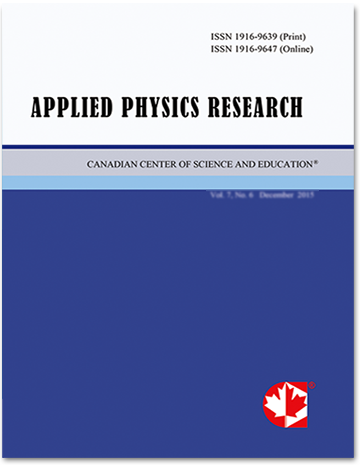Derivation of the Multimoment Hydrodynamics Equations for a Gas Mixture
- Igor V. Lebed
Abstract
The equations for pair distribution functions are used to derive the multimoment hydrodynamics equations for gas mixture. The gas mixture pair distribution functions are specified. The equations for pair functions are derived directly from the general statistical mechanics concepts. The basic property of the pair functions is established. In conformity with basic property, these functions remain unchanged in time along the trajectory of the center of inertia of a pair. The basic property of the pair distribution functions reveals the existence of an infinite number of principle hydrodynamic values. Multimoment hydrodynamics equations are constructed using 3L+4 principle hydrodynamic values, where is the number of gas mixture components. Just these principle values specify measurable moments. The measurable moments are represented by linear combination of principle and non-principle hydrodynamic values. The general structure of constructed multimoment conservation laws is identical to the structure of appropriate multimoment conservation laws in a gas of identical particles. Each of the multimoment conservation laws is divided into two separate equations. The first group of conservation equations corresponds to convective phenomena. The second group of conservation equations corresponds to dissipative phenomena. Derived multimoment hydrodynamics equations are designed for interpreting the behavior of unstable systems. As is shown previously, classic hydrodynamics equations are incapable of reproducing flows after they lose stability. That is, the solutions to the classic hydrodynamics equations do not find the direction of instability development correctly. The possibility of improvement of classic hydrodynamics equations for a gas mixture is sought on the way toward an increase in the number of principle hydrodynamic values.
- Full Text:
 PDF
PDF
- DOI:10.5539/apr.v8n4p103
Journal Metrics
Google-based Impact Factor (2017): 3.90
h-index (November 2017): 17
i10-index (November 2017): 33
h5-index (November 2017): 12
h5-median (November 2017): 19
Index
- Bibliography and Index of Geology
- Civil Engineering Abstracts
- CNKI Scholar
- CrossRef
- EBSCOhost
- Excellence in Research for Australia (ERA)
- Google Scholar
- Infotrieve
- LOCKSS
- NewJour
- Open J-Gate
- PKP Open Archives Harvester
- SHERPA/RoMEO
- Standard Periodical Directory
- Ulrich's
- Universe Digital Library
- WorldCat
Contact
- William ChenEditorial Assistant
- apr@ccsenet.org
